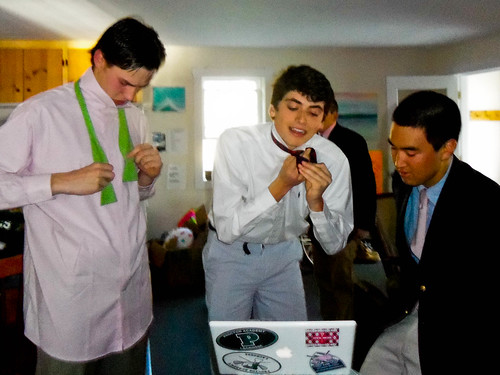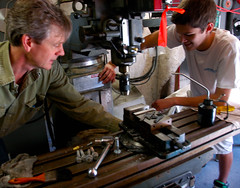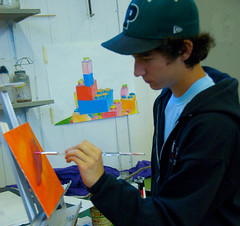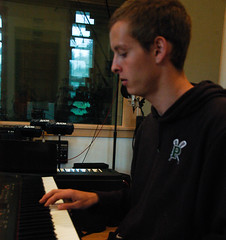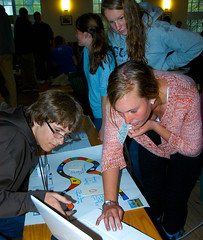Wesleyan University President Michael Roth has an
article on HuffPost exploring the value of residential liberal arts institutions (of which I would include Proctor,) in the face of easily available on-line academic credit from reputable institutions. Some of us have been seeing this storm approaching since the prophetic 1999 publication of
The Cluetrain Manifesto, which revealed with stunning common sense that the Internet would democratize markets of every kind, leveling the playing field in a manner that would favor only those businesses willing to adapt to new realities.

Some, who appreciated the immensity of the web's power, applied a naîve concept of education as the delivery of information to reach an alarming conclusion: attending schools...quality schools...expensive schools, would cease to have demand. After all, all the information is suddenly available to everyone! Who would pay forty-something thousand dollars to attend a prep school?

The topic gains attention today because Harvard University and Massachusetts Institute of Technology have just announced the availability of
free credit courses this next fall to anyone in the world. They are inviting other colleges to join in exploring the potential for on-line education. It's a huge, funded project under the mega-brand
edX.
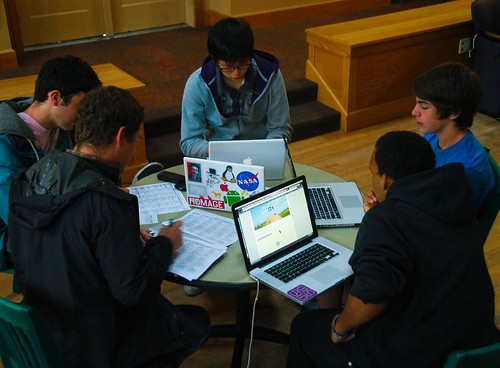
But alarmists who see the democratization of education as a threat to schools like Proctor, Harvard, and MIT need to know that demand for admission to those colleges will only increase as they lead us in to the new era. What they know is that education includes the transmission of information, and on-line programs have--and will increasingly have--the ability to provide peer feedback and classroom-like environments. But they will never provide human-to-human experience, and--specifically--the experience of community.
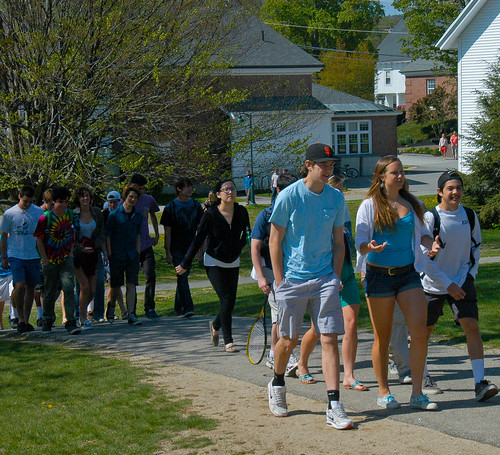
Mikayla orchestrated a demonstration to highlight the immediacy of climate change for her Environmental Social Science class Thursday. You can never do this on-line.

A school that has positioned itself as committed to experiential modes of teaching and learning is in a good place, as schools that define college preparation in more traditional modes (of imparting knowledge) struggle. This year, Proctor is experiencing another dramatic increase (17%) in applications for admission. Perhaps Ocean Classroom, Mountain Classroom, Proctor in Spain, Euro Art and our other off-campus programs can not be experienced without being there.
But that's not the real point. You can not replicate the on-campus experience either. These kids are operating a lumber mill on campus.
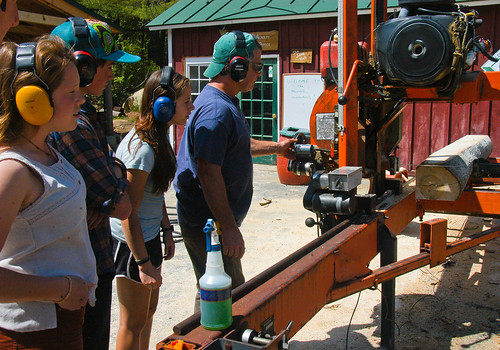
But my presentation of programs robs us from the critical point. Proctor is flourishing--and is going to continue to flourish--because of a "rubber meets the road" dynamic that is the means through which everything happens. Roth writes, "Our campuses should maximize each undergraduate's ability to go beyond his or her comfort zone to learn from the most unexpected sources." Does that not sound familiar? (This is a Proctor mantra!)
These kids are playing student-created games that explore complex social issues:
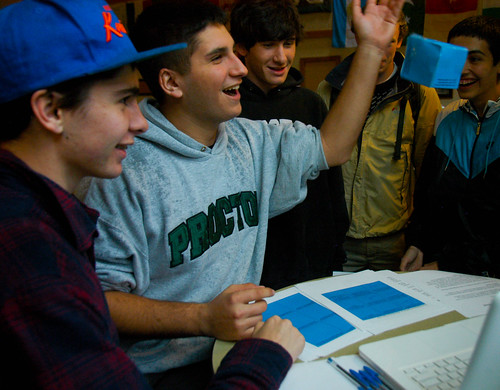

Then again.... online learning does have its place. In anticipation of the Spring Formal Dance, these boys are learning to tie bow ties via Youtube....
